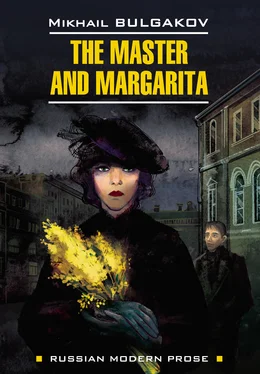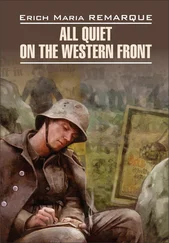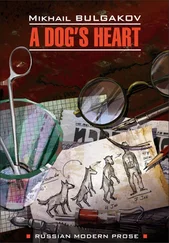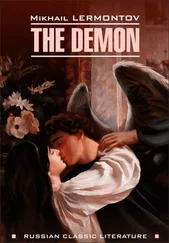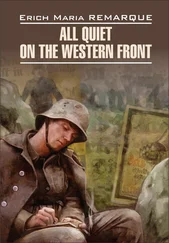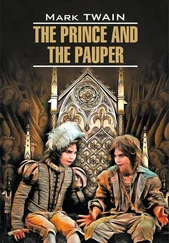At this point all those present moved off down the broad marble steps between walls of roses giving off a heavy scent, descending lower and lower towards the palace wall, towards the gates leading out into a large, smoothly paved square, at the end of which could be seen the columns and statues of Yershalaim’s stadium.
As soon as the group had emerged from the garden into the square and gone up onto the extensive stone platform that dominated it, Pilate, looking around through narrowed eyelids, assessed the situation. The space he had just crossed – that is, the space between the palace wall and the platform – was empty, whereas in front of him Pilate could no longer see the square: it had been devoured by the crowd, which would have flooded both onto the platform itself and into the cleared space if a triple row of Sebastian’s soldiers to Pilate’s left hand and soldiers of the Ituraean Auxiliary Cohort to the right had not held it back.
And so Pilate went up onto the platform, squeezing the unnecessary clasp mechanically in his fist and squinting. The Procurator was squinting not because the sun was stinging his eyes, no! For some reason he did not want to see the group of condemned men who, as he knew very well, would be led up after him onto the platform in just a moment.
As soon as the white cloak with the crimson lining rose up on high on the stone cliff at the edge of the human sea, a wave of sound struck the unseeing Pilate’s ears: “Ha-a-a…” It began softly, rising somewhere in the distance near the hippodrome, then became thunderous and, after being sustained for several seconds, began to abate. “They’ve seen me,” thought the Procurator. Before the wave reached its lowest point, it unexpectedly began to develop again, and as it rolled, it rose higher than the first one, and on the second wave, just as the foam rages on a roller at sea, there raged a whistling and the individual moans of women, discernible through the thunder. “They’ve led them onto the platform…” thought Pilate, “and the moans are because a number of women were crushed when the crowd surged forward.”
He waited for a time, aware that no power could make the crowd fall quiet until it had exhaled all that had accumulated within it and fallen silent itself.
And when that moment came, the Procurator threw up his right arm, and the last sounds were expelled from the crowd.
Then Pilate gathered as much of the hot air as he could into his chest and shouted, and his cracked voice carried over thousands of heads:
“In the name of the Emperor Caesar!”
At this point his ears were struck several times by an abrupt iron cry – in the cohorts, tossing up their spears and insignia, the soldiers had cried out fearsomely:
“Hail, Caesar!”
Pilate threw back his head and turned it straight towards the sun. A green fire flared up beneath his eyelids, which made his brain ignite, and above the crowd flew hoarse Aramaic words:
“Four criminals, arrested in Yershalaim for murders, incitement to revolt [115] incitement to revolt – подстрекательства к мятежу
and assault on the laws and faith [116] assault on the laws and faith – оскорбление законов и веры
, are sentenced to a shameful punishment – hanging on posts! And this punishment will now be carried out on Bald Mountain! The names of the criminals are Dismas, Gestas, Bar-rabban and Ha-Nozri. Here they are before you!”
Pilate pointed to the right, not seeing any of the criminals, but knowing they were there, in the place they were required to be.
The crowd answered with a long hum, as though of surprise or relief. And when it had died away, Pilate continued:
“But only three of them will be executed, for, in accordance with the law and custom, in honour of the Feast of the Passover, one of the condemned men, chosen by the Lesser Sanhedrin and with the ratification of the Roman authorities, is to have his contemptible life restored to him by the magnanimous Emperor Caesar!”
Pilate shouted out the words, and at the same time listened to the way the humming was replaced by a great silence. Now not a sigh, not a rustling reached his ears, and there even came a moment when it seemed to Pilate that absolutely everything around him had vanished. The city he hated had died, and just he alone stood, scorched by the vertical rays, his face digging into the sky. Pilate continued to hold the silence, and then began shouting out:
“The name of the man who will now be released to freedom before you is…”
He paused once again, delaying the name, checking that he had said everything, because he knew the dead city would rise again after the lucky man’s name had been uttered, and no further words would be able to be heard.
“Is that all?” Pilate whispered to himself soundlessly. “It is. The name!”
And, rolling the letter “r” over the silent city, he cried:
“Bar-rabban!”
At this point it seemed to him that the sun, with a ringing sound, burst above him and flooded his ears with fire. In that fire raged a roaring, screams, moans, chuckling and whistling.
Pilate turned and set off back along the platform towards the steps, looking at nothing but the multicoloured blocks of the flooring beneath his feet, so as not to stumble. He knew that now, behind his back, bronze coins and dates were falling like hail onto the platform, people in the howling crowd were climbing onto shoulders, crushing one another, to see a miracle with their own eyes – a man who had already been in the hands of death tearing free of those hands! To see the legionaries taking the ropes off him, involuntarily causing him burning pain in arms dislocated during interrogation, to see him frowning and gasping, but all the same smiling a senseless, mad smile.
He knew that at this very same time the escort was already leading the three with their hands bound towards the side steps to take them out onto the road leading to the west, out of the city towards Bald Mountain. Only when he found himself behind the platform, in its rear, did Pilate open his eyes, knowing that now he was out of danger – no longer could he see the condemned men.
Mingled with the moaning of the crowd, which was beginning to fall quiet, were the readily discernible, piercing cries of the public criers, repeating, some in Aramaic, others in Greek, everything the Procurator had shouted from the platform. The staccato clatter of approaching horses’ hoofs reached his ears too, and a trumpet trumpeting something briefly and merrily. In reply to these sounds, from the roofs of the houses on the street leading out from the bazaar into the square of the hippodrome came the piercing whistling of little boys and cries of “look out!”
The solitary soldier standing in the cleared space of the square with a standard in his hand waved it in alarm, and then the Procurator, the legate of the legion, the secretary and the escort stopped.
The cavalry ala, working up ever more of a canter [117] to work up ever more of a canter – «забирать» больше рыси, наращивать шаг и скорость в скачке на лошади
, flew out into the square to cut across one side of it, passing the throng of people by, and to gallop by the shortest route, down a lane beside a stone wall with a vine creeping over it, to Bald Mountain.
On drawing level with Pilate, the fast-trotting commander of the ala, a Syrian as small as a boy and as dark as a mulatto, shouted something shrilly and drew his sword out from its scabbard. The wild, black, lathered horse shied and reared up on its hind legs. Thrusting the sword into its scabbard, the commander struck the horse across the neck with a lash, straightened it up, and rode into the lane, moving into a gallop. After him in a cloud of dust flew the horsemen in rows of three; the ends of their light bamboo lances began to bounce, and past the Procurator sped faces that seemed especially swarthy under their white turbans, and with cheerfully bared, gleaming teeth.
Читать дальше
